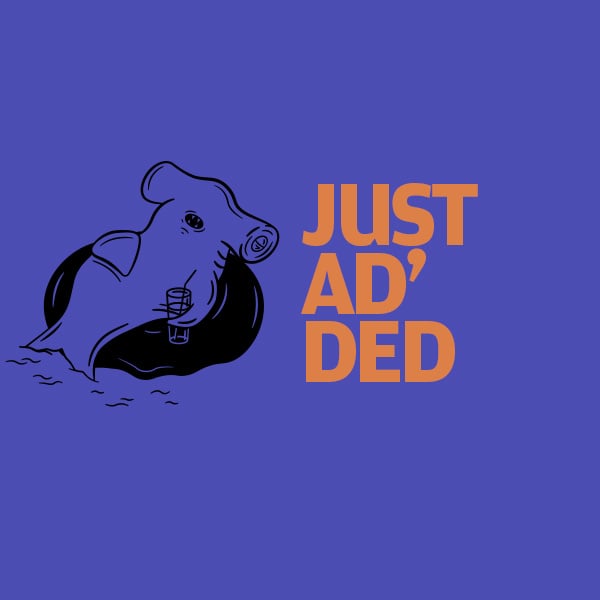Just Ad'ed May 26 - June 01
This week: Google updated YouTube Insights Finder to help advertisers understand audience behavior and confirmed it won't provide separate AI Mode...

This week: Meta introduced new lead generation tools and saw record Q3 revenue growth despite market skepticism, Google rolled out Promotion assets for Search and Performance Max campaigns while continuing to dominate with 16% revenue growth, Reddit hit profitability for the first time and became the #3 most-visited US site as ad revenue surged 74%, Microsoft Ads experienced a brief web UI outage (though ad serving continued uninterrupted), and Pinterest launched a voice-powered visual search assistant to help advertisers reach users with multimodal queries.
Last week, ad measurement startup Haus released findings from a large-scale study showing that Meta's Advantage+ Shopping Campaigns don't consistently outperform manual campaign management. This challenges Meta's push for marketers to "trust the machine" and hand over complete control to automated systems.
Death by dashboard meets reality. For advertisers spending in the blind on Meta's automated tools, this is your wake-up call. The promise of "set it and forget it" automation sounds compelling, but the data shows you still need human oversight and strategic testing. Don't let Meta's algorithm make all your decisions—build validation velocity into your process by comparing automated vs. manual performance regularly. The robots can crunch numbers, but humans still need to verify the results.
Reddit achieved its pre-IPO profitability goal of 40% adjusted EBITDA for the first time in Q3, while ad revenue grew 74% year-over-year. The platform is now the #3 most-visited site in the US behind only YouTube and Google, according to Semrush.
Finding the needle in the haystack just got easier. Reddit's explosive growth is driven by people seeking authentic human insights—exactly what AI chatbots reference constantly. For advertisers with 5M+ budgets, Reddit's full-funnel capabilities combined with its unique positioning as the "human insight" platform creates a powerful opportunity. Users come for genuine perspectives, not polished brand content. This means your creative needs to match the platform's authentic vibe, but when you nail it, the intent gap between discovery and conversion is smaller than traditional social platforms.
Google rolled out Promotion assets, allowing advertisers to highlight deals and sales directly in Search and Performance Max campaigns without modifying core ad copy. This provides a dedicated way to showcase time-sensitive offers alongside regular ad messaging.
Table stakes just got more sophisticated. For brands running seasonal promotions or ongoing sales, this is a cleaner alternative to constantly updating ad copy. The four-hour setup means you can launch promotional messaging quickly without disrupting your core campaign structure. Think Black Friday prep, flash sales, or rolling discounts—now you can turn promotions on and off without touching your carefully optimized ads. For Performance Max campaigns (where you already have limited control), this gives you an additional lever to pull when you need it.
Pinterest launched a voice-powered assistant that lets users expand visual searches with spoken queries. The tool combines image recognition with conversational AI to help users refine and explore visual inspiration more intuitively.
Platform pixel politics meets multimodal search. As Google's VP of Search confirmed last week, advertisers should expect "new and novel ad formats built for conversational and multimodal queries." Pinterest is ahead of this curve. For brands with strong visual products—fashion, home decor, food—this opens new targeting possibilities. Users who combine visual browsing with voice queries show higher intent than passive scrollers. The key? Your product imagery and structured data need to work together. This isn't just about pretty pictures anymore; it's about being discoverable when someone says "show me something like this but in blue."
Microsoft Ads experienced a brief web UI outage affecting campaign management access, though ad serving continued without interruption. The incident was quickly resolved but affected multiple advertisers' ability to make real-time campaign adjustments.
Sacred silos and single-platform dependency remain a critical vulnerability. While your ads kept running (thank goodness), the inability to optimize mid-day during an outage is a stark reminder: you need back-end truth and cross-platform capabilities that don't rely on any single interface. For brands spending millions monthly, this type of outage during a peak traffic day or competitive moment could mean significant waste. Build redundancy into your workflow—whether that's API access, automated rules that work when you can't, or diversified platform presence. Never be completely at the mercy of one platform's uptime.

This week: Google updated YouTube Insights Finder to help advertisers understand audience behavior and confirmed it won't provide separate AI Mode...

This week: Reddit reveals massive paid ad growth and gives advertisers more automation options, Google's AI Max expands with new location targeting...

This week: YouTube captured sports viewer attention with expanded ads, Meta launched AI-powered creative tools for brand campaigns, Google rolled out...